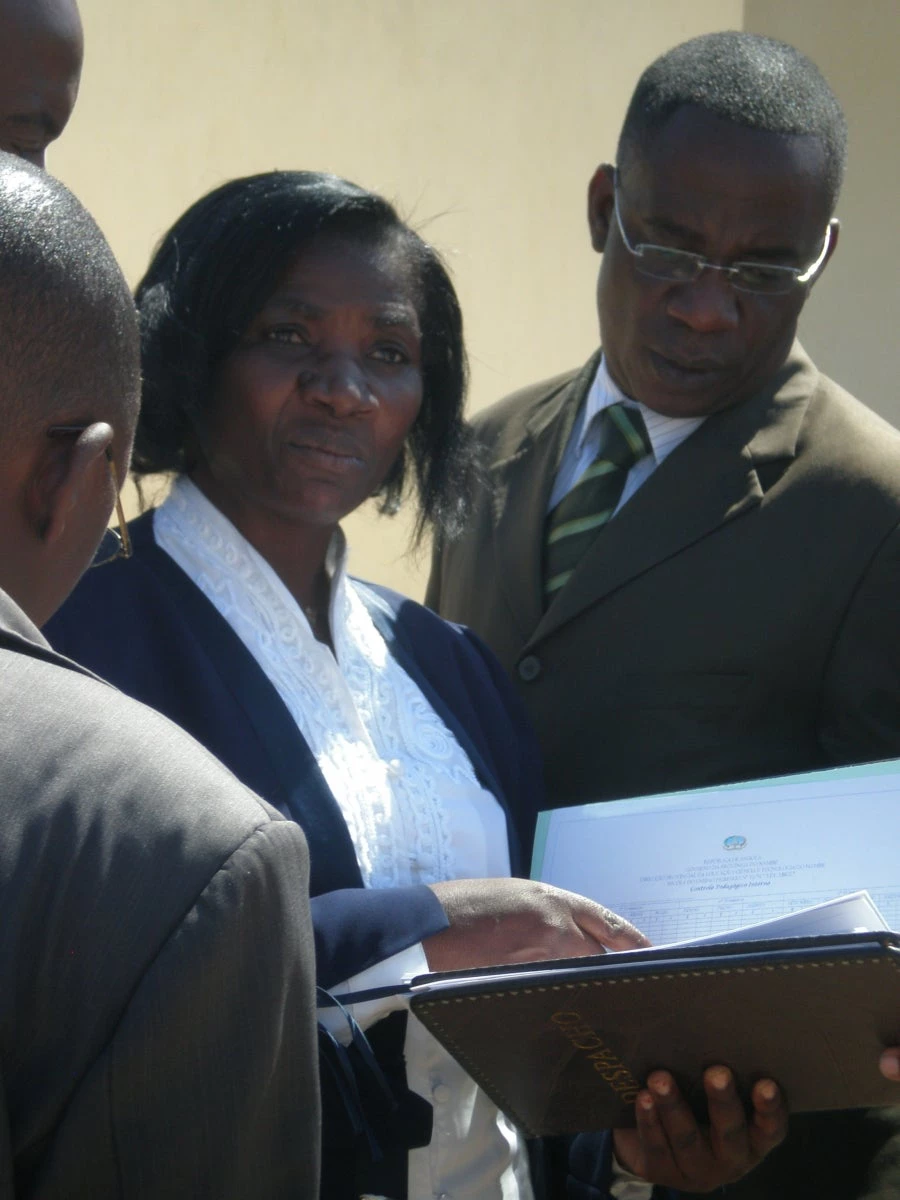
She is not a politician or the head of a big company. She is a school teacher in a poor area in the southern province of Namibe, Angola. Her school is part of a group called ZIP (zone of pedagogical influence), and although her school is the poorest among the three in the group, she was chosen as the group’s leader.
In Angola and many places in Africa, parents must purchase report cards which teachers then fill in to send home. In the following account Maria Ines, Head teacher of Tchinducuto, and Director of ZIP 6, describes how her school revamped the purchasing process and found a way to earn money for the students.
“In 2006/2007, student report cards were bought by the parents in a very unorganized manner. Many times, pages were missing and the cards were not new. By then, each parent was contributing to the school with 50Kz per month. When I took the school direction in 2009, I thought that I should sort out this issue of the student report cards, of which so many teachers were complaining.
After looking at all parent contributions, I realized that we had 52,500Kz resulting from 1,050 students that had registered that year. So I had an Idea. I called an assembly with the parents and I presented them with the idea of having the school produce the student report cards, which everybody found good. So, it was agreed that the school would buy paper, ink and binding materials, and would produce the cards. All prices and materials were agreed with the parents. In fact, if a parent were to buy the card in the market or shop it would cost him or her 580Kz. If this was to be furnished by the school, (we found out) the overall parent contribution would be 400Kz! This was a good deal! And soon it was extended to other materials that could be produced likewise.
So it turned out that we ended up selling student report cards and other materials to parents of children from other schools, and as a result we managed to earn 870,000Kz! The question was then, how to make the best use of these earnings? So again, I called the parents. A decision was taken to build a latrine not just for the school but for the students. This was constructed in two months under a budget of 799,000Kz. A detailed report of expenses was presented to the parents in assembly and the new latrine was inaugurated on June 1, the day of the child, with a big celebration!
My simple idea of sorting out the problem of the bad student report cards led to the development of a relationship with the community based on trust and on the belief that school conditions could improve. As a result, in the following year more and more parents participated in the assemblies. Carpenters, construction workers, painters, even ladies carrying water to water the cement blocks, or to cook for those working in construction became a part of the school community and life.
So, in the next three months, after a lot of joint effort and work, three new classrooms had been built, painted and furnished! These allowed us to increase the number of classes to six (in two shifts), and thus our school population increased by 240 students! The first to register their children were those who built the classrooms. Now, all I hear is: ‘Head teacher, you just need to tell us what to do. We are ready!’”
–Maria Ines, Head teacher of Tchinducuto, and Director of ZIP 6, Namibe, Angola


Join the Conversation